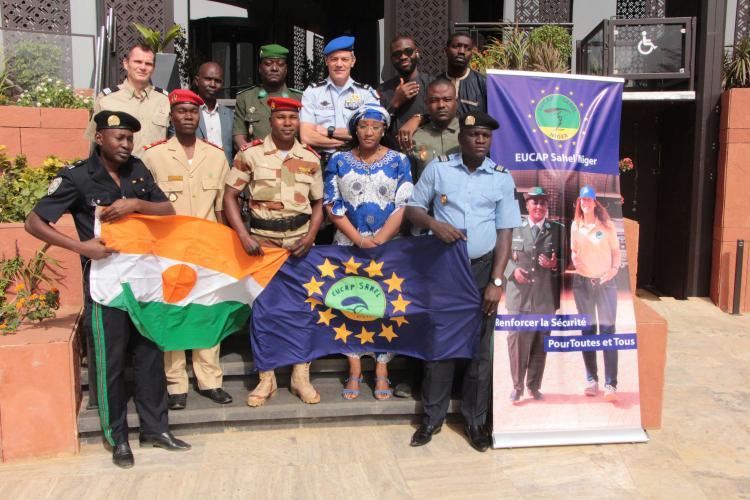EUCAP Sahel Niger: European Union Capacity-Building - Civilian Mission


Background
The Sahel is a vast region marked by extreme poverty and low levels of human development. A rise of violent extremism and organised crime over the last years, including trafficking in drugs, arms and human beings, pose security risks to the local population and eventually to the stability in Europe. Violence and conflicts in neighbouring countries, arising first in Mali in 2012 and later in Burkina Faso, increasingly affect Niger’s stability and jeopardizes the country’s development. However, Niger lacks sufficient resources to cope with the various threats.
In 2012, the European Union established the civilian capacity-building Mission EUCAP Sahel Niger with the overall aim to strengthen Niger’s internal security sector and its capacity to counter the various security threats. Since then, EUCAP Sahel Niger has supported the Nigerien Internal Security Forces, national authorities as well as non-state actors with a variety of different programmes and activities.
Mission & goals
To strengthen Niger’s capacities in the area of internal security, the Mission carries out a number of activities grouped around four pillars:
- Training;
- Mentoring;
- Strategic advice;
- Provision of equipment and infrastructure support.
EUCAP Sahel Niger mainly provides support to the Internal Security Forces, namely to the National Police, the Gendarmerie and the National Guard, transferring its technical and practical knowledge to the forces, and supporting their organizational and strategic planning processes, paired with infrastructure support. Apart from direct assistance to law enforcement actors, the Mission also supports the Nigerien Armed Forces in their interaction with internal security, and the criminal law system and judicial structures, with the overall aim of facilitating access to justice and protecting human rights. In addition, EUCAP Sahel Niger has significantly stepped up its efforts to provide strategic advising to the Nigerien authorities and ministries in charge of internal security policies. Throughout the years, EUCAP Sahel Niger has built strong partnerships with national, regional and traditional authorities, as well as with civil society, to promote a people-centred security concept.
Since 2018, EUCAP Sahel Niger increasingly focuses on training internal security officials to become trainers, which then can pass on their skills and knowledge to their Nigerien colleagues. In turn, the Mission enhances its focus on coaching and mentoring the internal security forces. This approach ensures the sustainability of the Mission’s work and strengthens local ownership.

Composition
Up to 150 Europeans from security institutions and civilian entities are permanently deployed to the Mission. Together with their 83 national colleagues, they assist the Nigerien authorities in reinforcing the internal security sector in order to protect the local population. EUCAP Sahel Niger is an essential element of the EU’s strategy for security and development in the Sahel and acts in close partnership and on all levels with other EU institutions and security stakeholder present in the Sahel.
The headquarters of EUCAP Sahel Niger are based in the capital of Niamey. In 2016, a permanent field office was established in Agadez to carry out the Mission’s mandate in the northern region. Regular field missions to all regions also allow remotely deployed security forces to benefit from the Mission’s assistance. At present, 16 European Member States contribute to the Mission’s objectives.

@Follow us
|
Mission/operation website: |
|
|
Facebook: |
|
|
Twitter: |
|
|
LinkedIn: |
|
|
Medium: |





